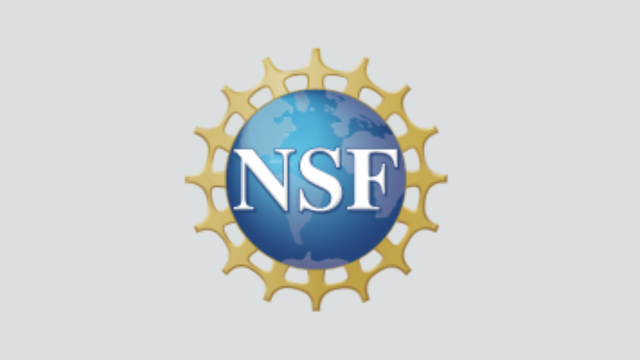April 2, 2024

Increasing public access to research funded by the US Department of Health and Human Services was the theme of a two-day workshop held in Washington, D.C., Nov. 30-Dec.1, and attended by Dr. Dane S. Claussen, NCA’ s Director of Research, Publications and Professional Advancement, on behalf of the NCA.
The Enhancing Public Access to the Results of Research Supported by the Department of Health and Human Services: A Workshop, sponsored by and the National Academies of Science, Engineering and Medicine, brought together scientists, nonprofit executives, scholarly publishing company representatives, librarians, government policymakers, and others, including a Nobel Prize winner. While panels’ examples of specific research and their applications were almost entirely about medical research, discussions of existing and potential policies, the lack of requirements and incentives for research being made available to the public, and solutions to the bottlenecks were often clearly applicable to social scientific and not only scientific (and especially medical) research.
Two topics that were repeatedly discussed or referenced, especially during the workshop’s second day, are research results not being written in plain English for a general public audience, including researchers often not being required (or given incentive) to translate research results for a general audience, and the general consensus among workshop attendees that scientists are often unable to write their results for the general public’s understanding. The first problem was regarded by speakers as the easier one to solve and one already being solved: federal research grants generally now require researchers to report research results to the general public, which in turn requires them to report results in accessible ways. The second problem was considered more difficult to solve because no organized, trained cadre exists to translate scientific research results for a mass audience.
Carrie Wolinetz, principal/chair of the Health and Bioscience Innovation Practice Group at the Lewis-Burke LLC law firm, was the substitute keynote speaker because Adam Politis, Senior Policy Advisor for Disability and Equity, White House Office of Science and Technology Policy, was unable to attend. Wolinetz emphasized that the public needs not just access to research results, but equitable access, such as for persons with disabilities. She also mentioned the role of the news media in disseminating scientific information, and the media, like the public, needs results written in plain English understandable to a large audience.
Session 1, “Value Cost of Public Access: Policies, Models, Opportunities,” was devoted to a discussion of types of open access to published research: Green Open Access (OA), Gold OA, and Diamond or Platinum OA. Under Green OA, the article’s publisher allows the author(s) to self-archive a copy of the article in a subject-based or institution-based repository. Under Gold OA, the article is widely available and the author(s) usually retain copyright, but there typically is a substantial Article Processing Charge (APC) of $2,000-$5,000. (Panelists noted that, on average, this is less than 1% of the amount of a National Institutes of Health research grant, that publishers should charge only “reasonable costs,” and that federal research grant terms supersede publishers’ terms.) Diamond/Platinum OA is when neither the author nor readers must pay a fee, and is more common among nonprofit publishers such as university presses.
Panelists pointed out various problems with open access publishing: authors often feel like they must be experts on copyright law and repository policies and procedures; Gold OA can result in publishers being paid twice, once by authors and a second time by libraries that subscribe to article databases; and others. (The University of California system combines authors’ and libraries’ OA fees saves $1.5 million per year on potential double-payment, but panelists conceded that other academic institutions don’t have the University of California’s clout.) (For more on type of Open Access, this explanation may be helpful: https://blogs.gwu.edu/himmelfarb/2023/08/09/green-gold-diamond-making-sense-of-open-access-models/)
The workshop’s second session was, “Beyond Embargoes: Accessibility Considerations for Building Public Access Policies.” Among its five panelists (plus moderator) were Jenny Peng, senior publisher at Oxford University Press. Peng said that OUP publishes about 500 academic journals for 300 academic societies (about 75% of OUP’s journals are society-owned), and that 140 of them are available with Gold OA.
She said OUP is exploring business models besides the current Article Processing Charge (APC), and also researching SEO (search engine optimization) and other content discovery possibilities. Opportunities for the Press, Peng said, include increasing partnerships and research training, expanding access in various ways, leverage Artificial Intelligence (AI), and redefining “impact” of research results.
John-Ross Rizzo, one of Peng’s co-panelists, is Ilse Melamid Associate Professor of Rehabilitation and Vice Chair of Equity and Innovation, New York University Grossman School of Medicine. Rizzo said that a commitment to accessibility needs to include “targeting level AA of the World Wide Web Consortium Web Content Accessibility Guidelines 2.1,” complying with the 2010 Equality Act and the European Accessibility Act by 2025, making content available by both PDF and HTML, optimizing mobile access, and performing user experience tests (U/X) with partially-sighted persons and accessibility experts. He emphasized that open access does not mean equitable access, and that accessibility policies must include the roles of authors, reviewers, editors, and publishers. For examples, manuscript submission processes must be completely accessible to everyone, and articles about accessibility issues should include reviewers with relevant lived experience.
For Rizzo, equitable access to research results means “proactively disseminate research results to [involved] communities,” “aggregate findings on a central site,” get assistance from libraries, “create UX/UI protocols to easily highlight/navigate to most important” results, “ensure documents are accessible according to WCAG standards,” “ensure articles that are referenced can be accessed,” “ensure research participants have access to their own data,” and encourage preprints.
The panel, which also included Moderator Pamela Padilla, Professor & Vice President of Research and Innovation, University of North Texas; E. Yvonne Lewis, Co-Director, Healthy Flint Research Coordinating Center; Lisa McCorkell, Co-Founder, Patient-Led Research Collaborative; and Yvette Pearson, Vice President for Diversity, Equity, and Inclusion, University of Texas at Dallas, also had a lengthy conversation about the need for research summaries written in plain language, including involvement from research subjects.
A third Workshop session, “Opportunities Created by New Public Access,” was structured as small breakout groups discussing the topics of earlier panels and making recommendations. Among the points emphasized by reporting groups were that publishers should hire people to professionally “translate” articles into plain language; publishers should demand accessible submission portals from software companies; that publishers are, and should be, increasingly doing reviewer training around the world; and that researchers should have more opportunities to share their data more often, including with “interim research products” and longer pilot studies. Participants also called for a “checklist” for Gold Open Access that everyone would agree on, and concluded that plain language summaries of research would require a “culture shift” and “retraining scholars” (assuming that researchers wrote their own plain language summaries rather than that being done by publishers or others).
Nobel Prize-winner Phillip Sharp, Professor of Biology Emeritus at the Massachusetts Institute of Technology (MIT), gave the Workshop’s second keynote speech. He said that current academic incentives are for the quantity, not quality, of research; the peer-review process is “strained” and that prestigious academic publishers are merging. Sharp asserted that the overall quality of society-owned academic journals is on the decline and that US academia is experiencing developments such as a scholar only two years out from a post-doctoral program being named editor of a prestigious journal. Yet MIT pays more than $30 million per year for Gold Open Access for 3,000+ new articles, he said. Sharp pointed out that world’s biggest producer of academic papers is China, and India is quickly increasing its output, while African researchers still need a lot of help.
The Workshop’s fourth session was “Research Results: Findability, Transparency, and Accessibility,” with panelists Lori Schultz (Moderator), Assistant Vice President for Research Intelligence, University of Arizona; Roger Schonfeld, Vice President, Organizational Strategy and Libraries, Scholarly Communication, and Museums, ITHAKA; Chris Shillum, Executive Director, ORCID; Jamie Wittenberg, Assistant Dean of Research & Innovation Strategies, University of Colorado Boulder; and Joseph Yracheta, Executive Director, Native BioData Consortium. Schonfeld emphasized that making research more “public” means just that: getting it to the public. Yet a slide that he showed the audience was titled, “Elsevier presence throughout the research lifecycle” from a paper by Goerge Chen, Alejandro Posada, and Leslie Chan, “Vertical Integration in Academic Publishing: Implications for Knowledge Inequality.” The slide shows the huge Elsevier publishing company, through various subsidiaries and partnerships, being involved in multiple ways in each of the research process, the publishing process, and the evaluation process of research. Pushing back against corporate control are efforts such as the “Report to the U.S. Congress on Financing Mechanisms for Open Access Publishing of Federally Funded Research,” released in November 2023 by the White House Office of Science and Technology Policy.
Schonfeld said that research “findability” is not the public’s problem: everyone can use Google and other search mechanisms. Instead, “Not everyone can establish the trustworthiness and authority of information resources,” and “Not everyone can distill or synthesize the knowledge one is seeking into usable form.” (Therefore, he said, “Academic and professional researchers have numerous advantages.”) Instead, the “American public needs usability.” Raw research results are not helpful, Schonfeld said, so academic literature needs annotations of “trust and authority” for the public; the public ideally needs regularly updated syntheses in plain language about research divided topic by topic; and “new approaches are needed to scientific communication” because of “vast misinformation and popular distrust in science.”
Shillum from ORCID said that persistent identifiers, such as ORCID numbers assigned to researchers and their metadata, “are the building blocks of open research infrastructure.” They allow for “better tracking of research outcomes,” “accurate attribution and enhanced discoverability,” “reduced administrative burden,” and having scholars in “alignment with FAIR Data Principles and Open Research practices,” he said. Shillum also advocated for use of DOI numbers on grants and articles, and also CHORUS, a “dashboard service [that] enables funders, institutions, researchers, publishers, and the public to keep track of open access compliance” by publishers that belong to CHORUS. Also mentioned was a Global Data Citation Corpus, a Wellcome Trust-supported project that collects data citations from different sources into a centralized, publicly accessible resource.
(NCA members who would like a copy of the 180-page “briefing book” [PDF] for the Workshop may email Dr. Dane S. Claussen, NCA’s Director of Research, Publications and Professional Advancement, at dclaussen@natcom.org).
